
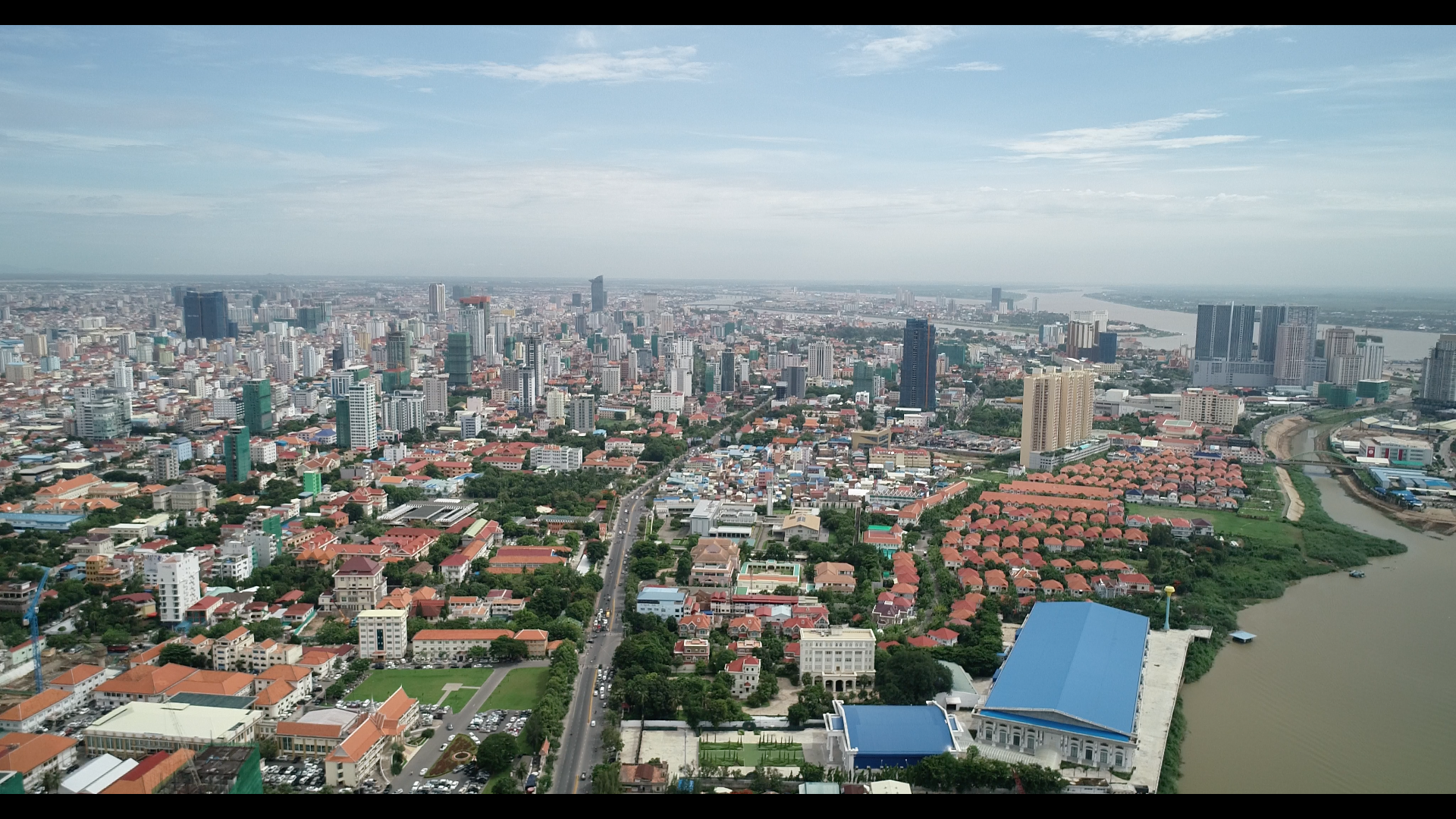
(Aerial view of buildings around Bassac area in Chamkarmon district / Realestate.com.kh)
Rosewood Hotel, Phnom Penh: CBRE Fearless Forecast 2020 cited another strong year for Cambodia’s real estate sector. But Marc Townsend, Chairman of CBRE Cambodia, and the primary speaker at the event cautioned that while the Kingdom’s economy is expanding rapidly, adjustments have to be made to sustain the growth of its real estate sector.
A strong entry into 2020
CBRE estimates a 7.1% GDP growth for Cambodia in 2019. This can be attributed to the continuing boom in the construction sector along with tourism and overall interest in Cambodia as an alternative investment destination compared to its neighbors.
According to CBRE’s report, a total of USD $9.3 billion worth of investments came into the Kingdom spread across 4,446 approved investment projects. For emphasis on the country’s relative growth, Marc Townsend cited that only 3 building licenses were issued in Ho Chi Minh city compared to the 405 building licenses that were given last year in the surrounding area of the Rosewood Hotel in Phnom Penh.
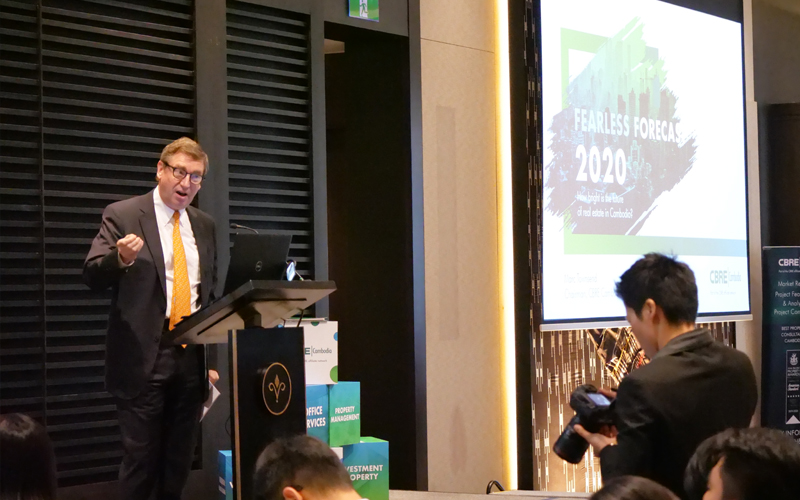
(Marc Townsend, Chairman of CBRE Cambodia speaks to a room full of mostly real estate professionals and investors / Realestate.com.kh)
As of Q4 2019, CBRE data shows the condominium sector had 27 new project launches and 11 completions, adding 16,500 units and 3,800 units respectively. The current condominium supply is divided among the High-End at 23%, Mid-Range at 53%, and Affordable at 24%. CBRE forecasts supplies of condominium units in 2020 to be divided into High-End at 24%, Mid-Range at 46%, and Affordable at 30%. The shift towards affordable units is cited to be due to the healthy demand among Cambodian buyers.
Upcoming condominium projects, provided they finish on schedule, are expected to put some downward pressure on prices across all segments of the market.
The CBRE report also states that housing loans increased by 30% this 2019 from USD $2.9B to USD $3.4B. Consumer loans increased at the same time from USD $6.2B to $ 7.1B this year. CBRE attributes these increase in loans to appreciating property values, lifestyle changes of Cambodians, and increasing competition within the banking sector.
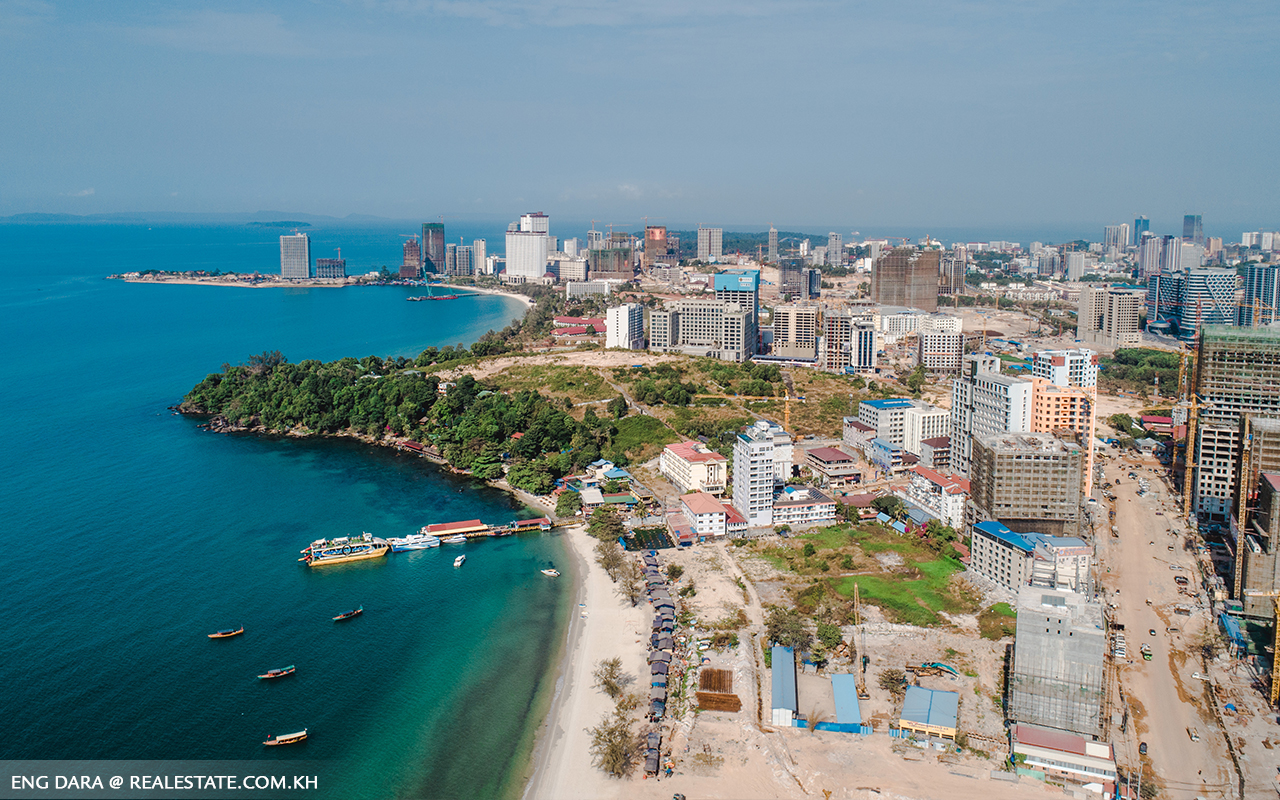
(A shot over the ocean and Sihanoukville's skyline as of 2020 / Realestate.com.kh)
Development funds have also diversified in Cambodia. Marc Townsend shares that these companies barely had any presence in the country’s capital markets almost a decade ago but in 2019, these have diversified into construction loans, formal & informal fund structures, bonds, IPOs, off-shore lending, crowd-funding, and venture capitals.
Cambodia, overall, remains an attractive investment destination compared to its neighbors. For example, data from CBRE cites that land prices in Ho Chi Minh city, as of Q4 2019, now go up to USD $30,000 per sqm in the inner city compared to USD $6,000 per sqm in Daun Penh.
These are but a few of the overall data presented suggesting that the Cambodian economy is expected to continue to see economic growth this coming 2020. It is, however, not free of challenges, as we’ve seen this past year.
Challenges of sustaining Cambodia’s economic growth
The two elephants in the room, according to the conference’s attendees during the Q&A, were the EBA withdrawal and the threat of property oversupply that could negatively impact the market.
Of the surveyed attendees, most agreed that the EBA withdrawal will have “Moderate” effects on the Cambodian economy. While it could have ripple effects in the real estate sector, nobody knows what would ultimately happen until it happens, according to the speakers.
As for the issue of oversupply, Marc Townsend introduced the idea that if there is an oversupply, then why are prices continuing to rise? He cites Vietnam as an example when it took off as a real estate venture. According to him, when the government relaxed regulations on foreign ownership, the property market went ballistic.
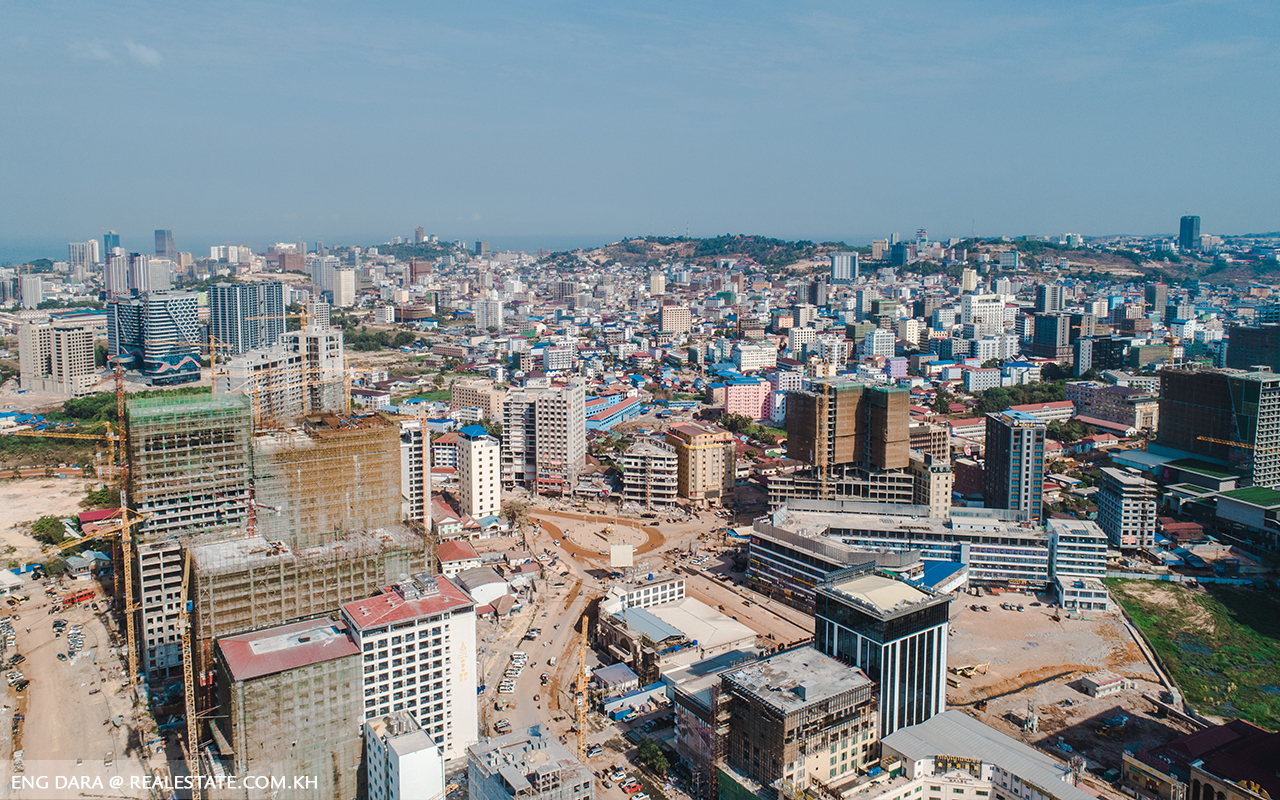
(A recent sky view of under-construction buildings in Sihanoukville city / Realestate.com.kh)
The same could be expected of the Cambodian real estate sector as it develops. Many of the high-end condominiums are available for the local Cambodian elite, with most units likely being owned by foreigners through strata-titles. And as more mid-range and affordable units come into stock, more local middle-class buyers will likely purchase their own condominium units.
Infrastructure in Cambodia has grown significantly in the past decade but it may face slowdowns if project managers are slow to push their developments forward. The news of national roads and ring roads being constructed/rehabilitated is driving land prices up and might cause roadblocks to project development due to price haggling and owner holdouts. Without swift resolutions, infrastructure developments (such as the aforementioned roads) will have difficulty meeting their target dates.
Marc Townsend also cautions Cambodia of the shift in priorities of big multinational investment firms. BlackRock, an investment management company handling USD $7 trillion in assets, instructed their fund managers to prioritise investment ventures that consider their environmental impact. This shift in socio-environmental requirements is likely to be followed by other investment firms and thus, must be considered by Cambodian stakeholders starting in 2020 to attract foreign investment in the future.
Ensuring tourist safety also came up as a means of growing the Kingdom’s tourism sector. Marc Townsend suggests that most tourists, especially the Chinese, value safety as a top concern when visiting a foreign country. A disciplined and well-equipped police force looking out for both the locals’ and foreign visitors’ well-being will only drive up tourism confidence in the Kingdom. This point is supported by a report from the Khmer Times where the Shanghai Chief of Police asked the Cambodian National Police to ensure the security of Chinese businessmen and travelers in the Kingdom.
The conference also discussed the recent construction-related accidents. Marc Townsend was clear these tragedies are an industry problem that must be addressed by developers by applying basic safety standards, the usage of quality materials, and adherence to the new government regulations. He lauded the passing of the much-awaited construction law and is hopeful Cambodia’s construction sector will avoid such tragedies ever again.
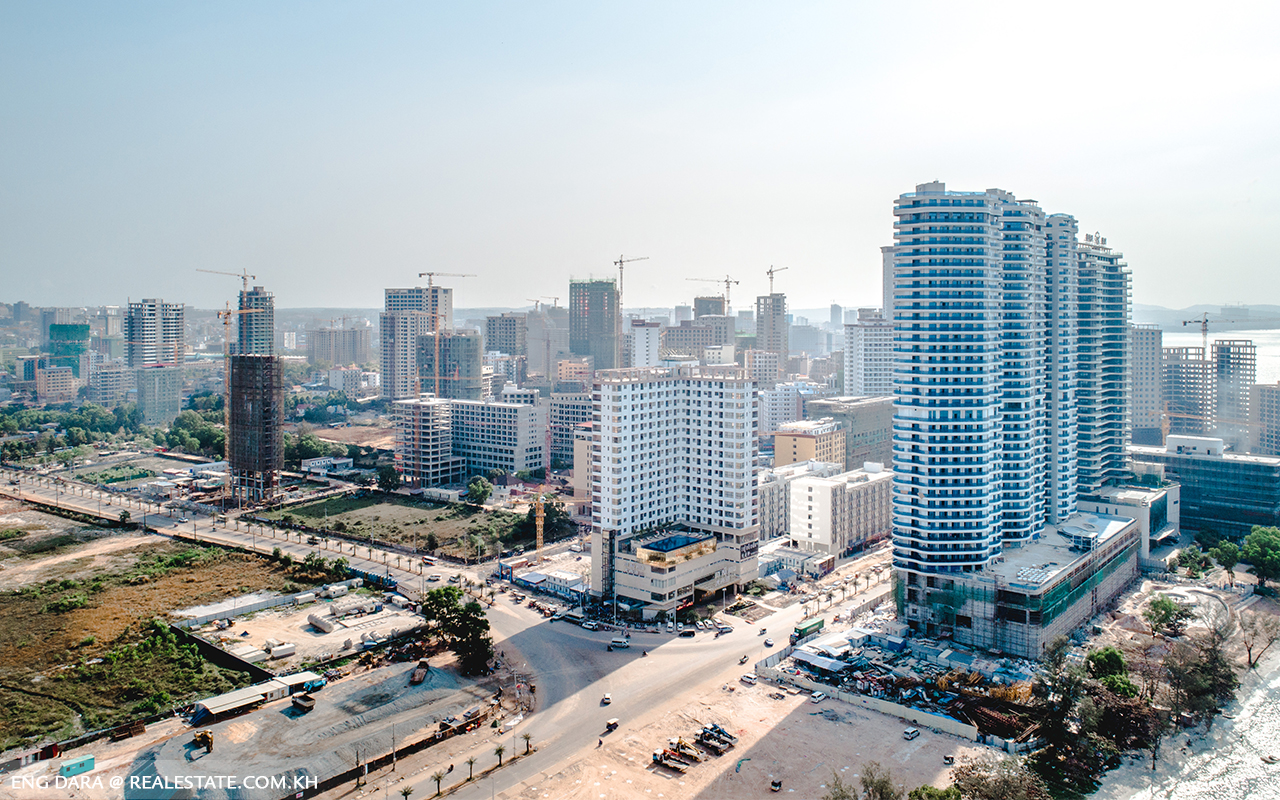
(Sihanoukville's skyline adjacent to the city's Independence Beach / Realestate.com.kh)
As Cambodia enters a new decade of development, winners, and losers in the real estate sector will likely be determined by an investor/developer’s ability to take advantage of Cambodia’s strengths and overcome the challenges presented.
Realestate.com.kh is proud to bring back Cambodia’s biggest Property & Lifestyle Market Expo which will be held on 7th and 8th August at Koh Pich Exhibition Center.
Booth sales and sponsorships for Home & Lifestyle Expo 2020 are open.
For more information, please contact:
Nin Kang (Khmer/Chinese)
+855 78 637 323
+855 93 552 305
nin.kang@realestate.com.kh
Tyler Stuart (English)
+855 12 599 699
+855 81 599 669
tyler.stuart@realestate.com.kh
Article by:

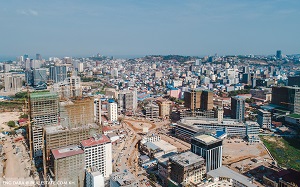

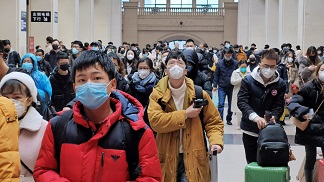

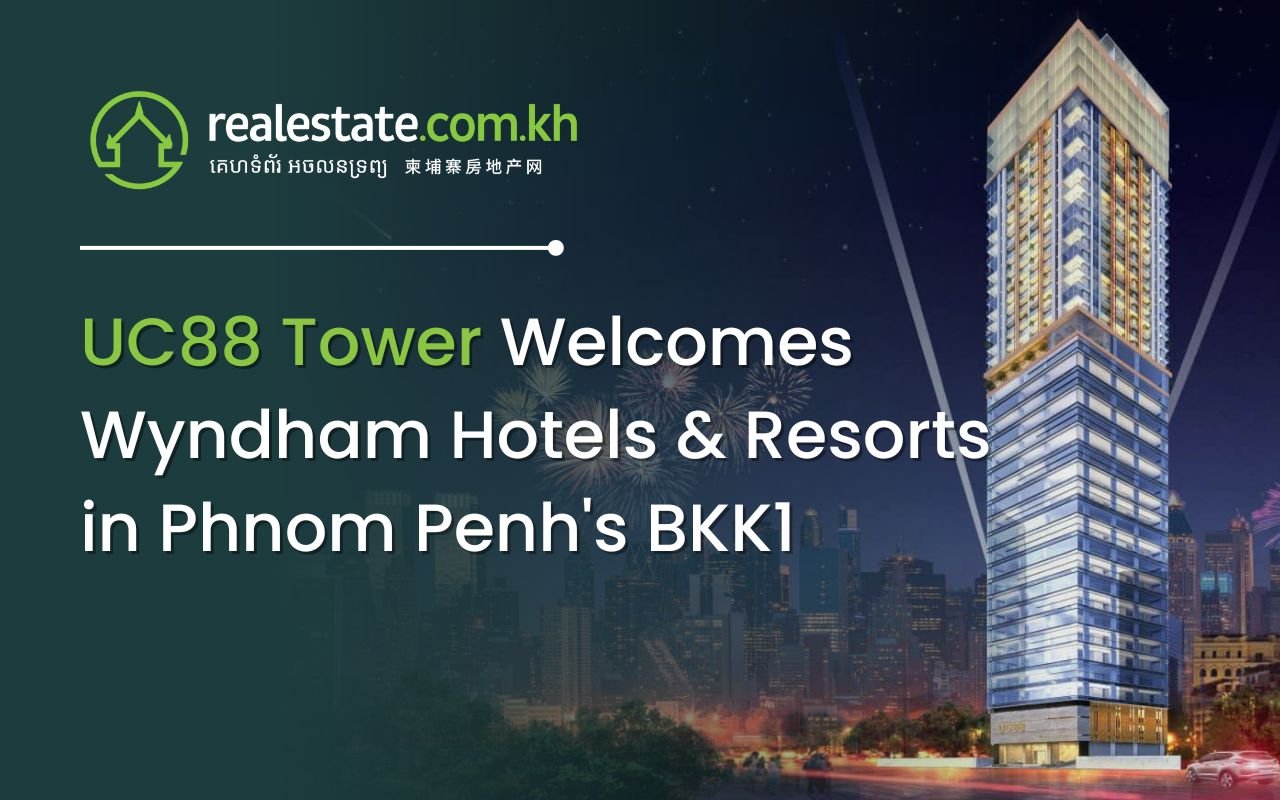
Comments